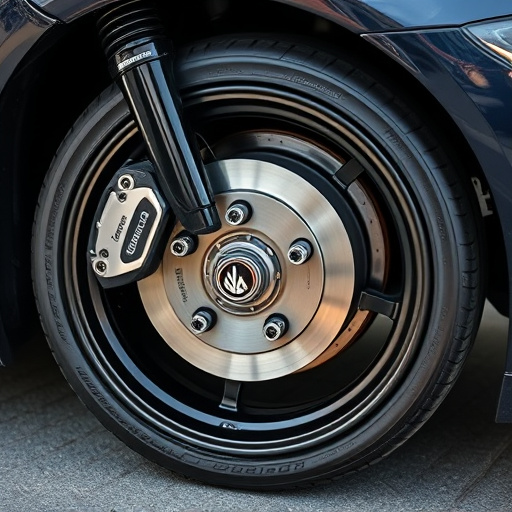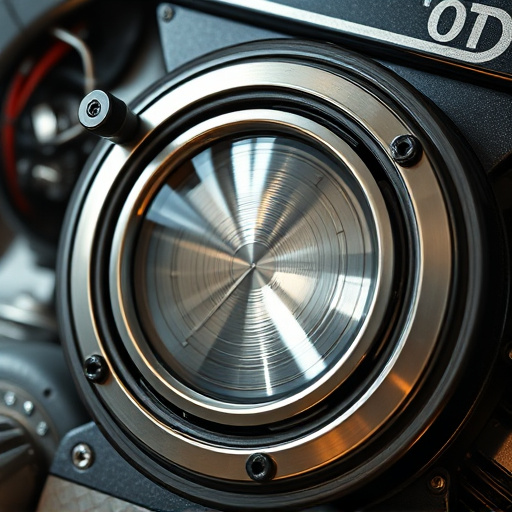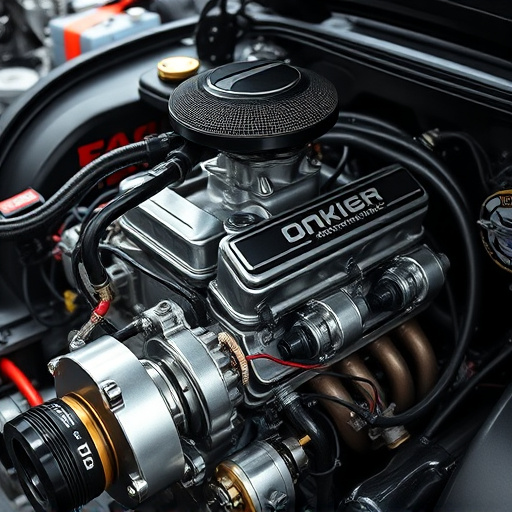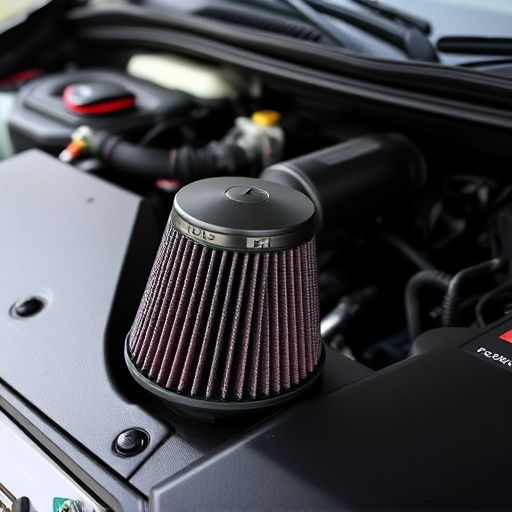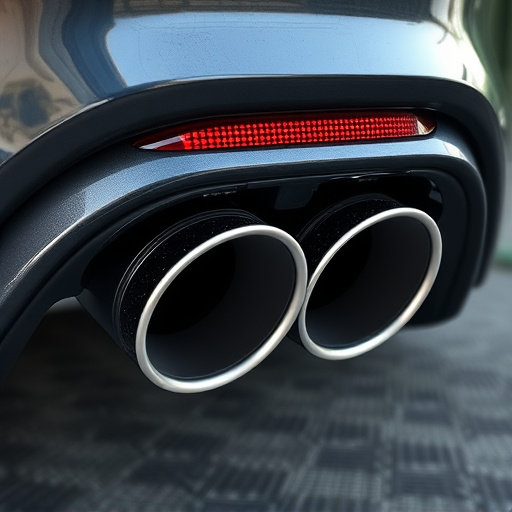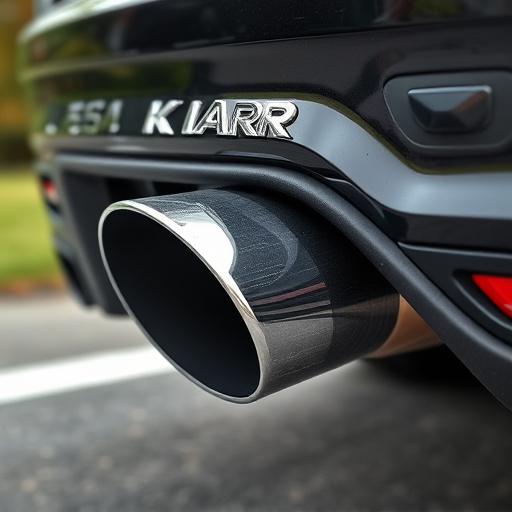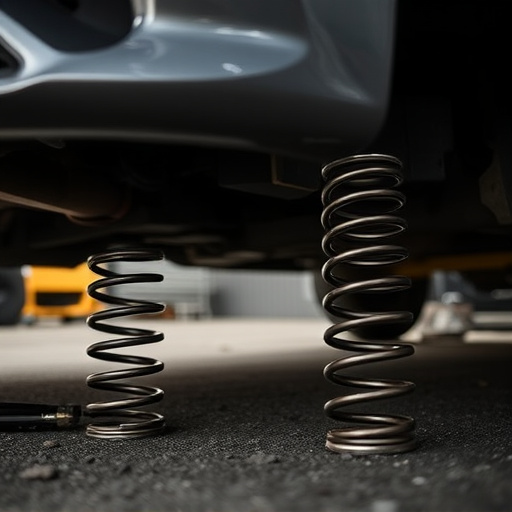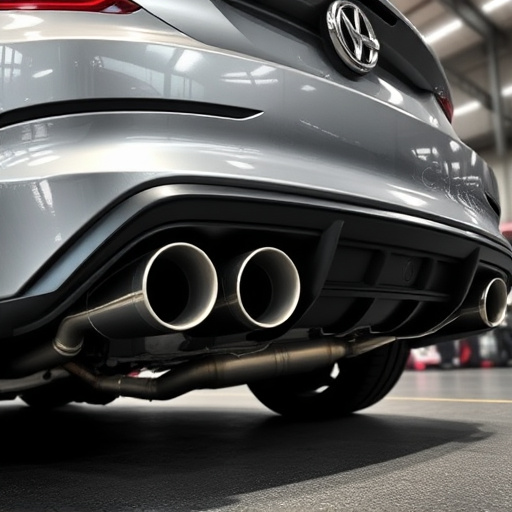Fine particulate matter (PM2.5) poses a significant challenge for vehicle engines, with traditional air filters often failing to trap them effectively. Dry air filters, using fine mesh material, offer crucial defense by capturing microscopic particles. They maintain optimal performance, extend exhaust muffler life, reduce maintenance needs, and contribute to overall efficiency. Essential for modern vehicles with tightly sealed engines, regular maintenance of dry air filters is vital to protect engines from harmful particulate matter, ensuring optimal performance and longevity.
Dry air filters play a pivotal role in protecting engine components from fine particulate matter, a common yet detrimental issue in today’s environments. This article delves into the significant impact of fine particles on engines and highlights how dry air filters act as a robust defense mechanism. We explore their efficient particle removal processes, unravel benefits that enhance engine longevity, and provide essential maintenance tips to ensure optimal protection.
- Understanding Fine Particulate Matter's Impact on Engines
- The Role of Dry Air Filters in Particle Removal
- Benefits and Maintenance Tips for Optimal Protection
Understanding Fine Particulate Matter's Impact on Engines

Fine particulate matter, often referred to as PM2.5, poses a significant challenge for vehicle engines. These tiny particles, measuring less than 2.5 micrometers in diameter, can infiltrate deep into an engine’s internal components. Over time, their presence can lead to severe damage, affecting not only the engine’s efficiency but also its lifespan. Unlike larger debris that might be caught by traditional air filters, PM2.5 is insidious—it slips through easily, causing wear and tear on delicate parts like pistons, valves, and cylinders. This eventually results in reduced vehicle performance and increased maintenance costs.
A dry air filter serves as a crucial defense against this pervasive pollutant. Unlike wet air filters that rely on moisture to trap particles, dry filters use a fine mesh of material to capture PM2.5 effectively. By ensuring clean, dry air enters the engine, these high-performance air filters help maintain optimal vehicle performance and extend the life of exhaust mufflers, further reducing maintenance needs and contributing to overall efficiency.
The Role of Dry Air Filters in Particle Removal

Dry air filters play a pivotal role in particle removal, especially within vehicles’ engine compartments. With their advanced design, these filters capture and prevent microscopic fine particulate matter from reaching the engine’s delicate components. This particulate matter, often originating from exhaust systems and suspension kits, can cause significant wear and tear if allowed to accumulate.
By acting as a barrier, dry air filters ensure that only clean, purified air enters the engine. This not only enhances the overall performance of the vehicle but also prolongs the lifespan of critical engine parts. The efficiency of these filters is particularly notable in modern vehicles where engines are more tightly sealed to improve fuel efficiency, making them even more vulnerable to the impacts of airborne contaminants.
Benefits and Maintenance Tips for Optimal Protection

Dry air filters offer numerous benefits for vehicle owners, primarily by protecting their engines from fine particulate matter and pollutants. These filters act as a barrier, trapping microscopic dust, dirt, and even some toxic substances that could damage internal engine components. By maintaining clean air intake, dry air filters ensure optimal performance and longevity of the engine.
To maximize the protection offered by your dry air filter, regular maintenance is key. This includes periodic cleaning or replacement, depending on usage and environmental factors. For enthusiasts looking to upgrade their vehicles’ capabilities, integrating high-performance parts like coilover kits and top-tier brake rotors can further enhance overall performance. However, ensuring proper air filter maintenance remains crucial, as it complements the functionality of these advanced components, contributing to a seamless driving experience.
Dry air filters play a pivotal role in protecting engines from fine particulate matter, ensuring optimal performance and longevity. By efficiently removing harmful particles, these filters contribute to cleaner combustion and reduced engine wear. Regular maintenance and timely replacement are key to maximizing their benefits, making dry air filters an indispensable component for any vehicle seeking to navigate the roads with enhanced efficiency and durability.

